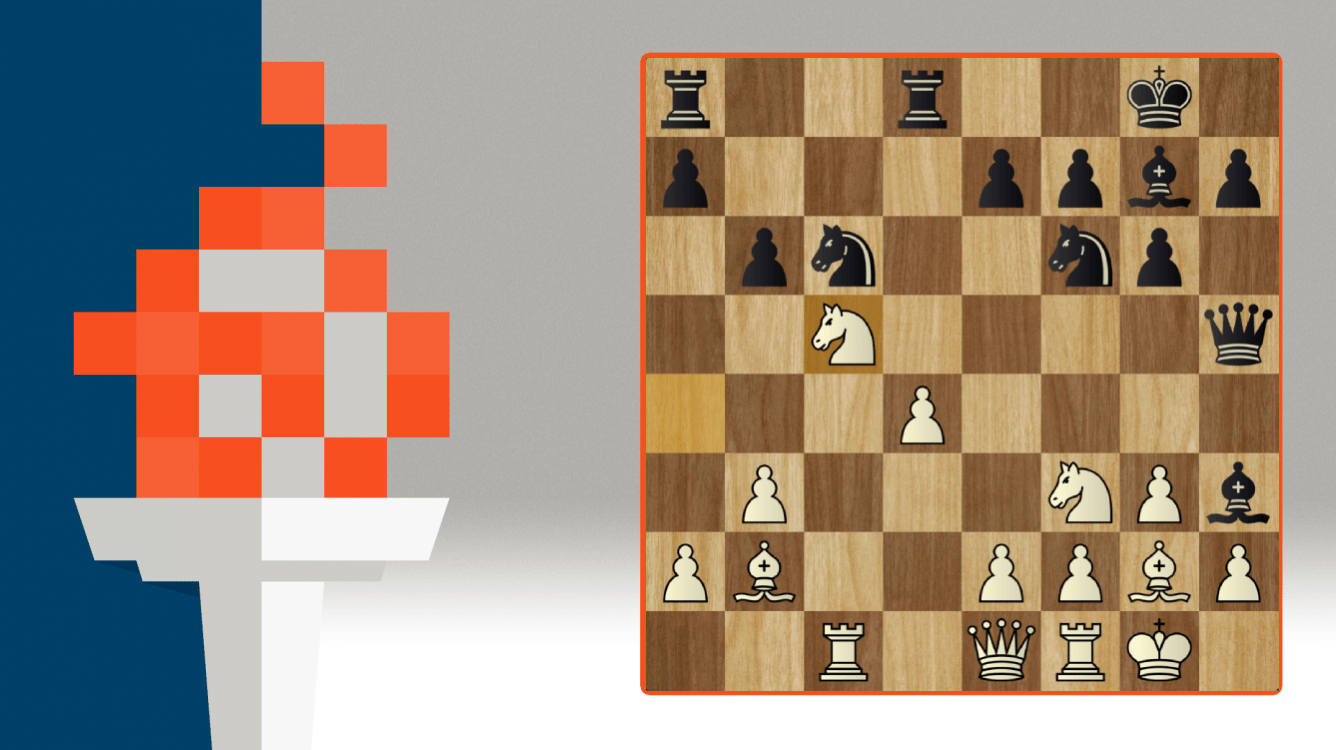
FIDE Online Olympiad Quarterfinals: China, India, Russia, USA Advance To Semifinals
Monday, September 13 saw some exciting quarterfinals action in the 2021 FIDE Online Olympiad. As a reminder, last week we had the top division's matches, from which eight teams qualified. We are now down to the final four teams.

The format of this event foresees a "duel" between the remaining four teams, namely two individual matches. If a team wins, they advance—if there's a tie, they play another round, this time with the blitz time control of 3|2.
So, today, we saw the following matches: China-Poland, India-Ukraine, Hungary-Russia, and USA-Kazakhstan. Let us dive in and see exactly how these matches went!
The Knockout games of the FIDE Online Olympiad can be found on our live events platform: On playing days, expert commentary is provided on Chess.com/TV.

Live coverage of the quarterfinals. Watch all of the live coverage at youtube.com/chess.
Quarterfinal 1
In the first quarterfinal, Kazakhstan faced the USA. In the first part of the duel, Kazakhstan won with a score of 4-2 in a rather ruthless much where not a single game ended in a draw. GM Rinat Jumabayev, known for his outstanding results against very strong players in the past (beating GM Sergey Karjakin at the 2019 Olympiad, eliminating GM Fabiano Caruana at the 2021 World Cup, etc.) beat GM Jeffery Xiong.
Additionally, on the junior board, IM Ramazan Zhalmakhanov Ramazan beat GM Awonder Liang, and on female boards, GM Abdumalik Zhansaya outplayed GM Irina Krush, and IM Bibisaura Assaubayeva beat WGM Thalia Cervantes Landerio.
The American team had to win the next segment to equalize the match score, and they managed to do so by a 3.5-2.5 margin.
Xiong managed to strike back in his game versus Jumabayev. On the second board, now different players were competing, namely GM Rustam Khusnutdinov and GM Ray Robson, with the game ending in a draw. On a junior board, the Zhalmakhanov once again outplayed Liang.
Krush defeated Zhansaya to even the score between the two of them. On board five, the American team replaced IM Anna Zatonskih with IM Nazi Paikidze, who outplayed her opponent IM Dinara Saduakassova. On the final board, Assaubayeva won again—she's been one of team Kazakhstan's finest players in this tournament!
So, with the match score tied 1-1, they had to play a round of 3|2 blitz games.
This time, Robson defeated Khusnutdinov, Xiong won against Jumabayev, Liang scored his first win against Zhalmakhanov, and Cervantes outplayed Assaubayeva on the last board for the US to win the match 4-2. Again, not a single draw!
So, after a highly intense and volatile series of games, the American team advanced further. What a great fight! I think this game, which showed the value of initiative in a highly convincing way, is really worth seeing.
Quarterfinal 2
In this quarterfinal, the winner of the Pool B, India, played the runner-up of the Pool C, Ukraine.
The first match saw draws on the two first boards, with the board one battle between GM Viswanathan Anand and GM Vassily Ivanchuk, and the second board clash between GM GM Pentala Harikrishna and GM Kirill Shevchenko. Overall, it was a rather peaceful match, with two more draws between GM Humpy Koneru and IM Iulija Osmak and between WGM R Vaishali and FM Mariia Berdnyk on the last board.
However, India managed to score two wins, as GM Nihal Sarin beat IM Platon Galperin on the junior board, and GM Harika Dronavalli outplayed IM Nataliya Buksa on board five. So, the first match ended up with India winning 4-2.
However, Ukraine came back strongly in the next match, as Shevchenko defeated GM Vidit Gujrathi, Osmak scored a win against Koneru to even their personal score in this march, and FM Berdnyk beat WGM Vaishali. Alongside another draw on board one between Anand and Ivanchuk, the Ukrainian team won 3.5-2.5.
And, one more match now had to be played. This time, India scored a tremendously convincing win 5-1, as two games were drawn, but GM Baskaran Adhiban outplayed Shevchenko, Sarin beat Galperin, Dronavalli outplayed Buksa, and Vaishali managed to score a win against Berdnyk.
Of course, given that all the teams in the quarterfinals are very strong, it is not surprising to see such a stubborn fight in each match, so Indian fans can be very proud of their team's performance!
I think the following fragment might be interesting, as it shows how lack of coordination can cause rather unexpected tactical problems.
Quarterfinal 3
The next match saw Hungary meet Russia—the only team that went through the previous stage with a perfect score!
Arguably, Russia is the most solid team in the event. Of course, there are a number of other tremendously strong teams as well, but the Russian team is the least volatile across all boards, perhaps, while other teams sometimes don't have a strong junior, or a strong female player, etc.
It goes without saying that this was a tough match for Hungary. The first round saw Russia win 3.5-2.5 after a very stubborn fight: games were drawn on three boards, Hungary scored on board two where GM Viktor Erdos won a game against GM Daniil Dubov, but the top seed managed to prevail on the first board, as well as on the female one: GM Vladislav Artemiev outplayed GM Imre Balog, and GM Valentina Gunina beat WIM Bianka Havanecz.
The second round ended with the same result: 3.5-2.5 to Russia's favor. This time, Hungary's board one GM Benjamin Gledura beat Artemiev, and three games were drawn. However, on the female boards, GM Alexandra Kosteniuk and GM Kateryna Lagno outplayed GM Thanh Trang Hoang and IM Szidonia Lazarne Vajda, respectively.
As a result, Russia advanced to the next stage. Of course, Hungarians have all the reasons to be upset about losing, but their team fought very stubbornly and showed some great chess during this event!
Of course, just like in any rapid/blitz event, there was room for blunders and drama, and I thought you might be interested in how an unexpected tactical mistake almost affected the outcome of this match.
Quarterfinal 4
Given how strong both China's and Poland's teams are, everyone must have been expecting a highly unpredictable and close match in this quarterfinal. However, after not winning their pool's division China apparently got very success-thirsty and ended up having an absolutely amazing day during the quarterfinals!
In the first round, China scored a terrific 4.5-1.5 win, having won four games and lost one. GM Ding Liren won a very energetic game against GM Jan-Krzysztof Duda, which started in a rather quiet manner, but things quickly escalated on the kingside (see more below!) Furthermore, GM Hou Yifan outplayed IM Karina Cyfka, GM Ju Wenjun beat GM Monica Socko, and on the last board, WIM Kaiyu Ning won against WIM Alicija Sliwicka.
As promised, here is the round one game between Ding and Duda, please take a look and learn a thing or two!
Unlike in the two first quarterfinals India-Ukraine and Kazakhstan-USA, there was no third round either, because China convincingly won the second round as well with a score of 4-2, finishing the quarterfinal right away. This time, there wasn't a single draw. The players that brought China success were GM Yu Yangyi who outplayed GM Radoslaw Wojtaszek, Hou Yifan who won one more game against Cyfka, Wenjun who this time had a different opponent - IM Klaudia Kulon - but again won, and Ning, who beat Sliwicka once again.
A good day for the Chinese team.
We are looking forward to the Semifinals on Tuesday, September 14, which should be even more exciting, as the tournament approaches its end and there will be only one winner.
ALL QUARTERFINAL GAMES
 The FIDE Online Olympiad, a major online chess event for national teams, runs August 20-September 15 on the Chess.com server. More than 1,000 participants and 153 teams from all over the world are playing.
The FIDE Online Olympiad, a major online chess event for national teams, runs August 20-September 15 on the Chess.com server. More than 1,000 participants and 153 teams from all over the world are playing.
Each team consists of six players, including at least two women, at least one player who is 20 or younger, and at least one female player who is 20 or younger. The time control for all matches is 15 minutes for the game and a five-second increment per move, starting from move one.
Related:

